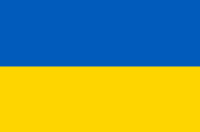What does the Russian invasion of Ukraine mean for cloud security?
 In the early dawn hours this morning, local time, the Russian military launched widespread attacks throughout Ukraine. Even after weeks of lead-up, many remain surprised by this aggression—already arguably the largest war in Europe since World War II.
In the early dawn hours this morning, local time, the Russian military launched widespread attacks throughout Ukraine. Even after weeks of lead-up, many remain surprised by this aggression—already arguably the largest war in Europe since World War II.
For public cloud customers, whether located in Eastern Europe or far away, the conflict feels close at hand. In a networked world, Russia’s advanced cyberattack capabilities could be deployed at any time to disrupt networks and infrastructure, or harm cloud workloads. To find out what this jarring new conflict means for cloud security, both for hyperscale providers like Microsoft and their clients, MSCloudNews reached out to cybersecurity experts.
David Nuti, SVP at Nord Security, North America described cybersecurity as the “watercooler topic of the day. He told MSCN:
Any organization reacting in a significant way today to "boost cyber defense" would be best served to keep that private. Acknowledging action is an admittance of vulnerability and the maturing a cyber defense does not happen overnight. The implementation and automation needed for effective monitoring, detection, and response is a 90-day process at minimum. Isolating information/data repositories from the open internet is an excellent recommendation. Creating a software defined perimeter that limits access to these resources with guardrails that enforce MFA (Multifactor Authentication) and required entry pathways, features found within a ZTNA (Zero Trust Network Access) framework address that.
The proliferation of network endpoints because of Bring Your Own Device policies and IoT has created an ever-widening attack surface.
Earlier this week, Chris Kubecka, Special Advisor to Lionfish Cyber Security and CEO of HypaSec, was in Kyiv, Ukraine to advise the Ukrainian government on cybersecurity. She noted the greater risk of nation-state-focused attacks:
[T]here are heightened risks of cyber attacks. These are in the form of direct nation-state attacks, criminal attacks from Russia and Russian hacktivist or patriotic attacks. Russia does not and will not extradite Russian citizens for external to Russia cyber attacks. Essentially decriminalizing them…Russia is well known to suck up private data. They might go after yours, also causing fines against your company. Assess any Ukrainian, UK, US, German, Polish, Romanian relationships. Russia may target companies who are in these countries or do business with them. Consider any country which has agreed to sanctions.
Kubecka shared her thoughts with MSCN hours before missiles began to rain down on Ukraine. Lionfish Security told MSCN in a follow-up, “We are in direct contact with Chris, and she is currently safe and on the move with a support team. She and everyone affected is in our prayers.”
FREE Membership Required to View Full Content:
Joining MSDynamicsWorld.com gives you free, unlimited access to news, analysis, white papers, case studies, product brochures, and more. You can also receive periodic email newsletters with the latest relevant articles and content updates.
Learn more about us here